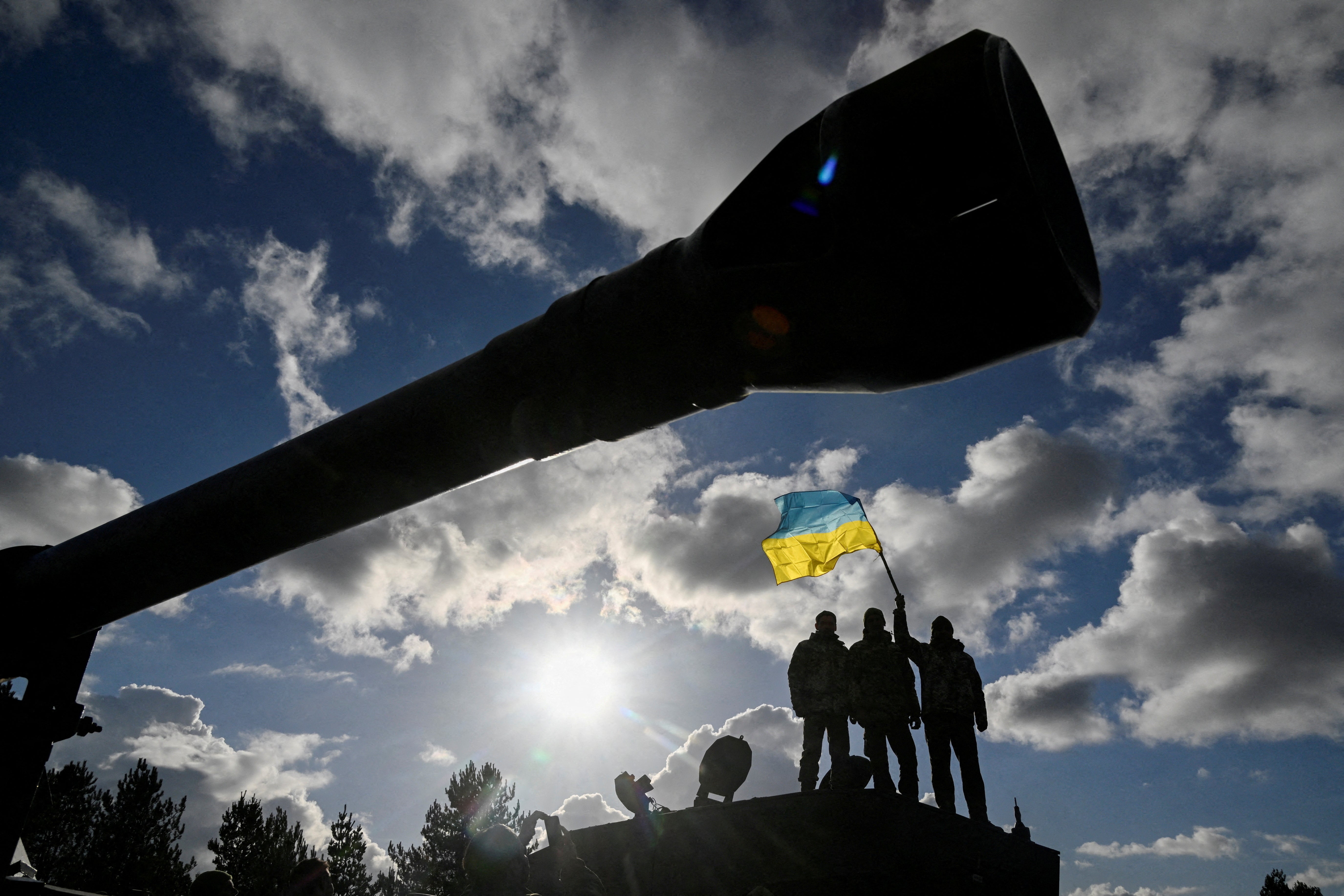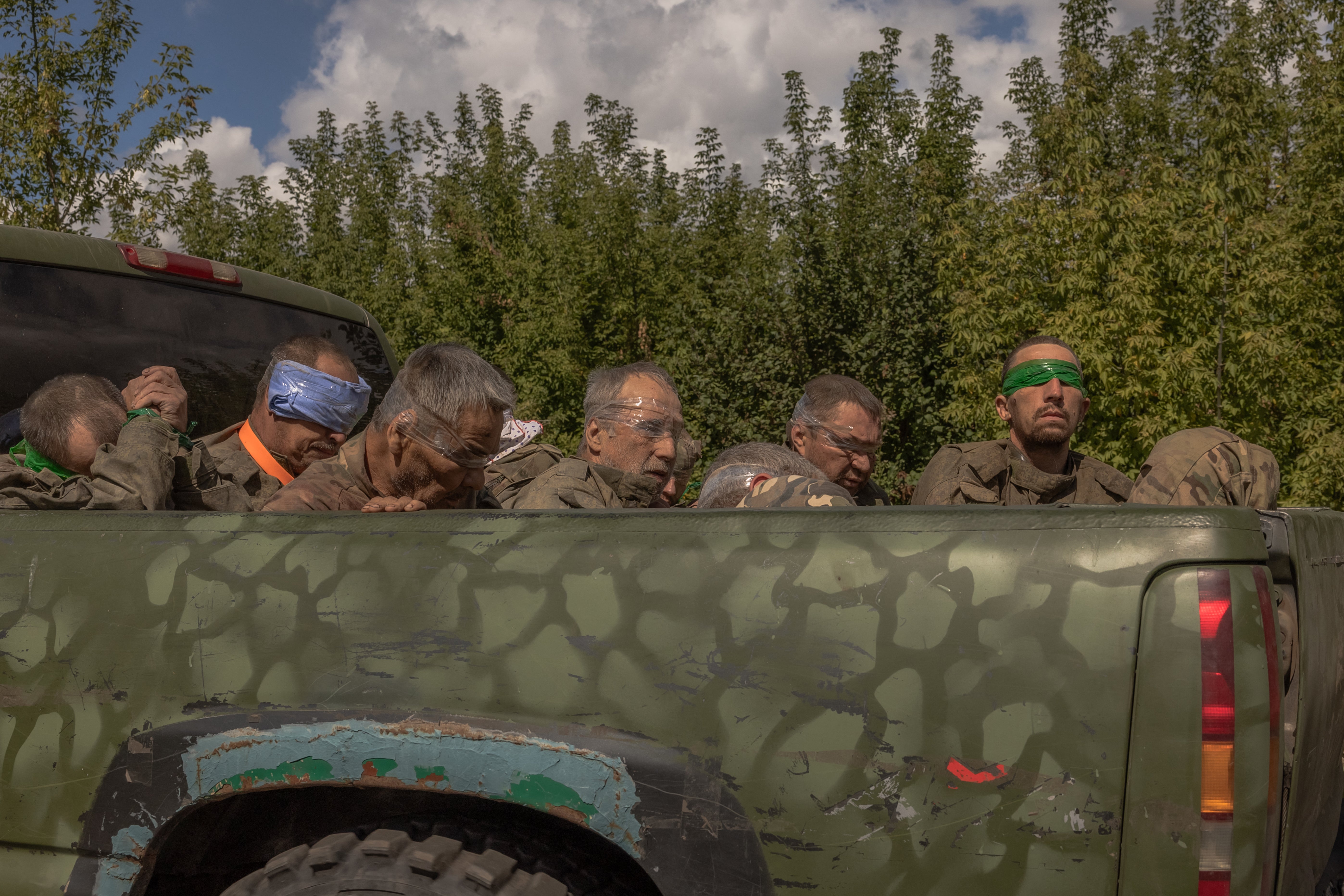Britain keeps poking the Russian bear – don’t be surprised if it lashes out
The UK’s steadfast and vocal support for Ukraine has not gone unnoticed in Russia – it could become a soft target as Putin finds his options increasingly limited, writes Mark Almond


Confirmation that British-made Challenger 2 tanks are now in action inside Russia, in Ukraine’s counteroffensive in its Kursk region, have set off an explosion of Anglophobia in the Russian media.
It is understandable why the deployment of British-made tanks there made headlines here. But given the scale of American, German and French involvement in backing Ukraine’s military as well, at first glance the venom directed from Moscow’s media at the UK seems irrational.
But Russian TV viewers are treated almost nightly to discussions by “experts” on Britain’s “malign” role not only in the current conflict, but over centuries of perfidious Albion’s plotting against Russia’s interests and its territorial integrity, even when the two nations were allied against Napoleon or Hitler.
Modern Britain is in many ways not only a post-imperial society but also a post-historical one. Who here remembers, let alone gets excited by, the Crimean war 170 years ago?
Russia has not forgotten its past, though its official memory is highly selective. For Russians, the Crimean war was yesterday. Moscow’s seizure of the peninsula in 2014 wasn’t a stepping stone to Vladimir Putin’s grab for the rest of Ukraine eight years later, but a turning back of the clock not only before Khrushchev’s grant of Crimea to Soviet Ukraine in 1954 but before the “thin red line” of British redcoats landed there in 1854.
Back then Lord Palmerston hoped to split up the Russian Empire by encouraging non-Russians to rebel against the Tsar. Today’s Russia contains many of the same ethnic groups from its North Caucasus border regions to deep inside its territory.

Only a few emigres and their sympathisers in the West really expect an implosion of multi-ethnic Russia today, like the collapse of the USSR itself in 1991. But in Moscow these dreams are seen as a threat by Russia’s most widely quoted historian – Vladimir Putin.
What might seem “ancient history” to us, something over and done with, is Putin’s guiding light. Recall how he justified his invasion of Ukraine with so much historical background on the war’s opening morning in his speech or his production of centuries-old documents in his recent long interview with the American Trumper and media gadfly, Tucker Carlson.
So Putin’s historical grudges have consequences. Britain could be in line for “provocations” short of war to “punish” us for supporting Ukraine so openly and effectively.
The UK could be a softer target for Russian countermeasures than the “main enemy” America, but still send a message to Washington.
Putin has a particular animus against the UK as Russia’s veteran imperial rival but also as the first active European supporter of Ukraine after his invasion. Russian media flatters Boris Johnson with the perverse credit for scuppering the peace talks between Russia and Ukraine in spring 2022 after the Kremlin recognised that its original plan to seize Ukraine had failed.
Britain’s armed forces are very rundown. All six of our nuclear-powered hunter-killer submarines are in dock being serviced – at a leisurely pace. The army is short of tanks and personnel. The RAF’s Storm Shadow cruise missiles are largely in or en route to Ukraine.
More importantly, our vital infrastructure is ill-guarded and often already ill-maintained. The recent poisoning of the water supply to two German barracks is an example of what hostile agents could achieve by spilling even small amounts of toxic fluids into reservoirs.
Sabotaging Britain’s offshore undersea internet cables could be achieved by a “deniable” accident, just as a Chinese ship dragged its anchor over the energy interconnector between Finland and Estonia, two Nato members, but not protected against “accidents”.
Cyberattacks hitting hospitals or transport systems could inflict social and economic damage without leaving Russian fingerprints. The recent spy swap showed there are Russian “sleeper agents” in European countries. Why not in Britain?
Recent incidents like the sabotaging of the French high-speed railway system on the eve of the Olympics might well have been the work of an autonomous radical left-wing group, but they showed how a very small number of people with strategic knowledge and fairly simple equipment can cause temporary havoc.
This old grudge match between Russia and Britain holds within itself risks of escalation to a wider conflict. Overconfidence that Putin has not gone over the top when previous apparent Russian “red lines” were crossed doesn’t mean that he will swallow humiliations forever. Botched sabotage or cyberattacks could trigger Nato’s common defence pact.
There were good reasons why Britain backed Ukraine strongly from the start of the war. There are still good reasons for standing by Kyiv’s struggle for independence. But just as the Russians mistakenly assumed their own territory was “off the map” as a place for actual combat, let’s not be naive and presume these islands are invulnerable.






Join our commenting forum
Join thought-provoking conversations, follow other Independent readers and see their replies
Comments